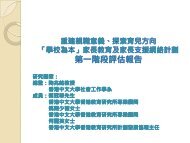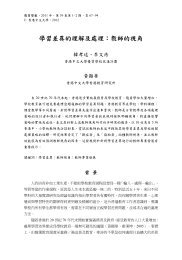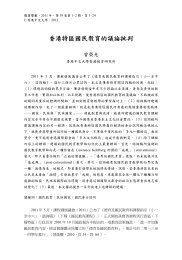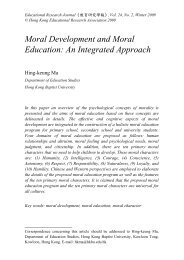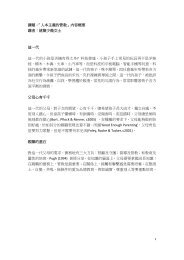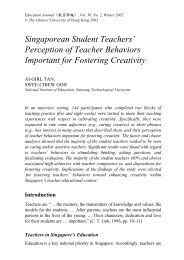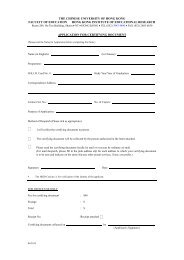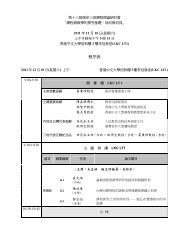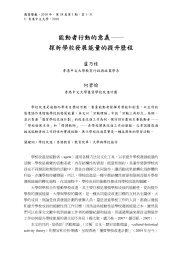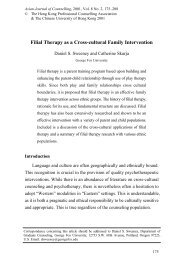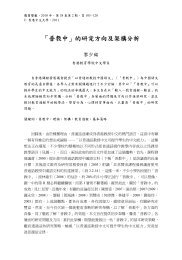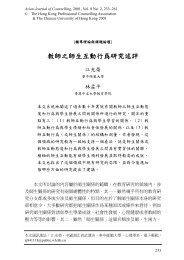Using School Evaluation Policy to Effect Curriculum Change? A ...
Using School Evaluation Policy to Effect Curriculum Change? A ...
Using School Evaluation Policy to Effect Curriculum Change? A ...
You also want an ePaper? Increase the reach of your titles
YUMPU automatically turns print PDFs into web optimized ePapers that Google loves.
202 Shirley Sze-yin Yeung<br />
Overstating Academic Achievement Undermines the <strong>Effect</strong>s of<br />
<strong>Curriculum</strong> Reform<br />
The study disclosed that the EDB was again found <strong>to</strong> be rhe<strong>to</strong>rical with<br />
their policy formulation and implementation. On one hand, the officials<br />
advocate “whole person education”; on the other hand, schools are<br />
evaluated on their ability <strong>to</strong> score good academic results, for example in<br />
the Terri<strong>to</strong>ry-wide System Assessment (TSA). Therefore, schools were<br />
keen <strong>to</strong> boost the results of their students in public examinations, rather<br />
than focusing on developing students’ capacity for learning <strong>to</strong> learn (a<br />
slogan of Hong Kong’s curriculum reform, <strong>Curriculum</strong> Development<br />
Council, 2001). Thus, the performance-oriented nature of ESR fortifies<br />
the quantitative, examination-oriented tradition of the educational<br />
context in Hong Kong (Biggs, 1996).<br />
This orientation would bring down the ideal of the curriculum<br />
reform. If assessment is used <strong>to</strong> determine individual competence, old<br />
values of community, cooperation, individual need and equal worth<br />
would be replaced by values that celebrate individualism, performativity<br />
and differentiation (Ball, Bowe, & Gewirtz, 1994). This is in opposition<br />
<strong>to</strong> the values of the renewed curriculum (<strong>Curriculum</strong> Development<br />
Council, 2001), which specifies moral values as one essential aim for<br />
reform.<br />
In reality, findings from this research show that teachers and<br />
curriculum leaders have become more goal-oriented as the education<br />
enterprise, under the influence of ESR, becomes defined in terms of<br />
output (PIs, test results) rather than process. The danger of “teaching <strong>to</strong><br />
the test” would, quite contrary <strong>to</strong> what is expected in the curriculum<br />
reform, diminish the quality of teaching. The researcher did hear from<br />
curriculum leaders that teachers were willing <strong>to</strong> change their way of<br />
teaching in times of ESR. However, one curriculum leader said,<br />
“Teachers would not sustain this because they are clear that preparing<br />
students <strong>to</strong> surpass others in tests and examinations is more important”<br />
(CD 12: 76–78 ).



